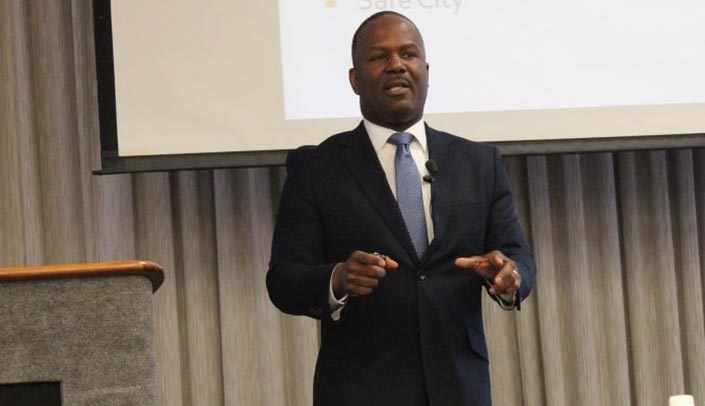The annual Martin Luther King Jr. program, held Jan. 15, offered attendees a window into history, which included pieces of Dr. King’s vision left unfulfilled.
The seats inside lower Storz Pavilion were full to hear keynote speaker Willie Barney, founder and president of the Empowerment Network.
Barney spoke about Dr. King’s famous “I have a dream speech” from 1963, but he enlightened the crowd, sharing that it wasn’t just a vision, but a strategic plan.
Barney shared Dr. King’s Freedom Agenda, launched in 1968, which outlined a 10-year plan to end poverty in America.
“Poverty impacts all races,” Barney said. “The economic strategy was part of his dream.”
But by 1969, Dr. King, Robert and John F. Kennedy and Malcom X were gone. Barney said the promised funding to execute the plan was used to pay for other priorities, a big one included the Vietnam War.
Today in Omaha, Barney said, there’s plenty of evidence to be encouraged.
“Omaha has the potential to show the rest of the country what happens when we come together,” he said. “One political party can’t solve it. It will take all of us.”
Barney shared the graduation rate among African-American students at Omaha Public Schools has increased from 62 percent to 81 percent. The same students have demonstrated a 28 percent improvement in reading scores. The percentage of African-Americans with a bachelor’s degree increased to 22.5 percent in Omaha, which is above the national average.
Omaha has an 8.9 percent unemployment rate among African-Americans. “That’s the second lowest among major cities in the U.S.,” he said.
“Dozens of cities are looking at what’s happening in Omaha,” he added. “Let’s be a beacon, that city on a hill, that shows the rest of the country how working together Dr. King’s dream of life, liberty and the pursuit of happiness is possible for all.”
